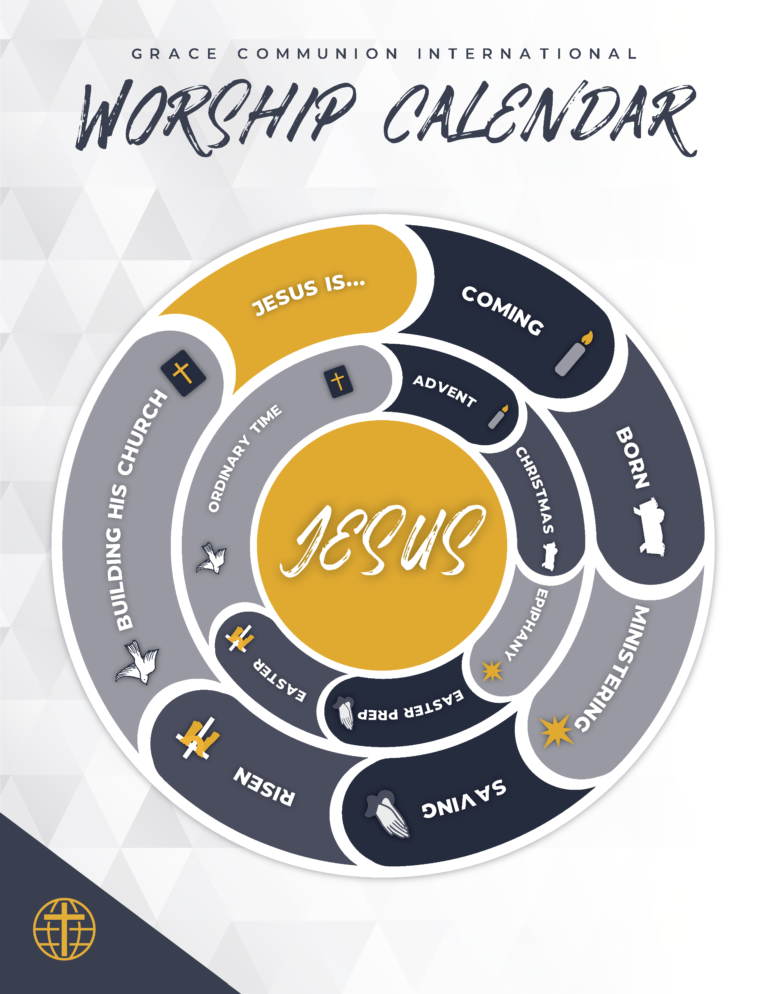Speaking of Life 3009 | Jonah—Prophet or Cautionary Tale
If you’ve ever thought you’ve developed a better path forward than the one God has revealed, remember Jonah’s cautionary tale. He was so confident in how God “should” be acting, he nearly missed what God was doing – spoiler God’s agenda is always love. Let’s not miss out on joining him in sharing that love with the whole world.
Speaking of Life 3009 | Jonah—Prophet or Cautionary Tale
Greg Williams
If you ask anyone about Jonah, what will they say the story is about?
The whale. Every kids’ book and cartoon adaptation of Jonah features some hybrid of Moby Dick and Jaws creeping up out of the seaweed to swallow the hapless prophet.
But the real story is much bigger. Jonah is asked by God to avert the destruction of Israel’s sworn enemy, Nineveh. Jonah, out of an ethnic hatred of these people and anger about God showing them mercy, ran in the other direction as fast and far as he could.
At one point, he even chose to kill himself by jumping into angry seas rather than obeying God’s call. In his own rage and bitterness, he would rather die than soften his will to God’s.
God turns the tables on him by sending, as we all know, a giant fish.
God turns the tables again by hearing the Ninevites repenting and holding back his judgment.
But Jonah remains unmoved. He ends the whole book arguing with God over whether God is allowed to show mercy to these people.
In a sense, Jonah gets his theology right, but he misses who God is. Sure the Israelites are the people of God, sure the Assyrians were bloodthirsty and godless, but in the book of Jonah we read, God is:
“…a gracious God and merciful, slow to anger and abounding in steadfast love, and relenting from disaster.” Jonah 4:2 (ESV)
Isn’t that who we want God to be? Sure! But Jonah was blinded by his own self-preservation and his own thoughts on how God should be acting. Instead of a prophet, his story became a cautionary tale.
Has that ever happened to us? Have we ever so figured out how God should be acting that we miss what he’s doing? Does an obsession with theological details sometimes cause us to lose the big picture—that God loves the world and wants to draw everyone to himself?
Let’s not forget that God’s main business is love—and that love is messy, fuzzy, spontaneous, and generous. He’s not going to follow whatever expectations we have for him, and he’s not consulting us on how far to extend his grace. Halleljujah! Let’s be grateful! Embrace his lavish love for you and for your perceived enemies. That’s how GOOD God is.
I am Greg Williams, Speaking of Life.
Psalm 62:5-12 • Jonah 3:1-5, 10 • 1 Corinthians 7:29-31 • Mark 1:14-20
The theme this week is God’s unstoppable calling. The call to worship Psalm talks about God’s unstoppable power in the universe—we can’t stand against it; God has the final word. Jonah 3 tells about the repentance of Nineveh—a people that didn’t know or care about God. In 1 Corinthians 7, Paul admonishes us to live with our calling in sight because the way the world runs is falling away before God’s incoming kingdom. Our sermon, from Mark 1, focuses on the calling of the disciples—imperfect people who were called into God’s unstoppable work.
Mark 1: The Paradox of Calling
Read, or have someone read Mark 1:14-20, then start by asking the members how the year 2020 disrupted their lives.
2020 was an interesting year. Things seemed fairly normal up to middle of March, and then the world changed. The strangest sights have become familiar. For months many stayed home and had their groceries brought by strangers in a mask. Restaurants that were open only sold carry out and served us curbside. Playgrounds were roped off with yellow police tape. For more than a month, toilet tissue was the hottest commodity.
One thing you can say about 2020 is that normal life was disrupted. Despite all the securities and technology of modern life, Covid-19 somehow made it through all and disrupted our lives. Add to that the many protests, the burning, looting and rioting. Yes, 2020 was a year of disruption. At times it seemed everything was being disrupted and kicked off the stable rails where it ran (and it’s still not over with).
Disruption.

The story in our text for today is one of disruption. Jesus not only called these men, but he also derailed their lives. They were the last people you might think of as call-able, and they did not really seem to get it until Jesus ascended right in front of them.
Let’s look at this story of calling, which holds a lot of disparate realities together at the same time. Like many of the stories of Scripture, this one is heavy with paradox.
The calling of these disciples and all of us is:
- Ordinary, yet disruptive
- Divine, yet utterly human
Ordinary
As Jesus passed along the Sea of Galilee, he saw Simon and his brother Andrew casting a net into the sea—for they were fishermen. (Mark 1:16 NRSV)
Years ago in American politics, a Washington insider nicknamed the “hatchet man” was embroiled in scandal as part of the infamous Watergate Seven. He was tried and convicted and imprisoned in a very public trial.
Through the ministry of Christian friends, he came to accept Christ in his mid-forties. He then went on to start a global nonprofit for prisoners and to write over thirty books. We know the “hatchet man” as Chuck Colson, a member of Nixon’s inner circle in the ’70s. He went from Beltway destroyer to a minister of the gospel.
We all go through a transformation, but not as dramatic as Colson. Many of us are like the disciples, who, in many regards, could not be more ordinary.
They were fishermen. In that society you couldn’t get more middle class. They were even less interesting than the shepherds who got the announcement of Jesus’ birth. At least the shepherds were part of a slurred and disparaged part of society. The wise men were exotic, educated and rich. But when it came to the actual disciples, a good number of them came from a forgettable, lukewarm part of society.
And that’s the idea. As it’s been said before: God doesn’t call the equipped, he equips the called. These men were not community organizers like Chuck Colson or great speakers or businessmen. They were middle-of-the-bell-curve unremarkable, just like most of us.
Yet they were called ringside for the most important event in history.
Disruptive
Despite the sheer ordinariness of these men and these initial conversations, their lives were never the same.
Similar to the virus upending the tamed and explored modern world, Jesus’ call disrupted every part of their lives, and society shortly after.
This twist is contained in their first conversation:
And Jesus said to them, “Follow me and I will make you fish for people.” And immediately they left their nets and followed him. (Mark 1:17 NRSV)
Jesus met them where they were—using the net-casting image they were used to, but “fishing for people”? What does that mean? He just juxtaposed the strange and the familiar, and that is how their lives would be from then on.
These guys went from third and fourth generation fishermen in the belly of their family fishing boat to international fame and excruciating martyrdom. All in a few decades.
Jesus didn’t just change the plan or the coordinates, he changed the gravity. Suddenly the way they knew identity (occupation, family, tradition) would be turned on its head. What they waited for—the kingdom of God—was suddenly upon them in a way no one had guessed it would be.
Life—disrupted.
Most of us, like most people in church history, were not called quite this way. Yes, some of you may have dramatic stories like Colson, Dwight Moody, or Mother Theresa, but most of us will have a small circle of influence and be left out of the history books.
What does the call of Jesus mean for the rest of us?
Let’s take a small step to the side and consider a minor biblical character, Joseph of Arimathea, who shows up in about 2 ½ verses in the Gospels. He’s mostly known for donating his grave for Jesus’ burial.
Other than that, Joseph was an upper-class member of the ruling council who kept his interest in Jesus a secret. He was self-protective, half-in, half-out—like many of us if we’re honest. Yet he somehow followed the call even in his own small way. After Jesus’ death, Joseph used his influence to get the body for burial. He stuck his neck out—not dramatically, but in a way that was necessary for things to go on.
The final time we see Joseph is in John 19:
So they took the body of Jesus and wrapped it with the spices in linen cloths, according to the burial custom of the Jews. (John 19:40 NRSV)
Here he is, with Nicodemus, doing slave’s work. People in the upper crust like him were never supposed to do that kind of work. But here he is, free from the status and prestige of his station, free to serve. He has been disrupted by the call of Jesus.
We have no indication that he changed his occupation or left it all. We just know that he was someone else after meeting Jesus.
And maybe that is the change we will see in ourselves. Sometimes there is this dramatic dropping of everything, sometimes the gravity changes in the details within your life.
So, the call of Jesus is ordinary—meeting unremarkable people in unremarkable lives. Yet it’s disruptive, changing the gravity we live by so that it’s never the same.
The call of Jesus is also divine, while remaining utterly human.
Divine
Now after John was arrested, Jesus came to Galilee, proclaiming the good news of God, and saying, “The time is fulfilled, and the kingdom of God has come near; repent, and believe in the good news. (Mark 1:14-15 NRSV)
Mark begins his gospel very suddenly. No birth stories, no long theological thoughts—Jesus just kind of appears, walks out of thin desert air.
And he announces that the “kingdom is at hand.” Those words seem strange to us in a world where royalty is rarely seen, but we have to try to put ourselves in that setting.
King Jesus. Sure, Savior Jesus or best friend Jesus, but King Jesus? And yet the imagery is all through the Gospels. Jesus is the son of David in the royal line, he is hailed as King of kings, and he is given a crown of thorns, a purple robe and enthroned on a cross.
We have to remember that Jesus didn’t just come to be our buddy and heal our self-image, he came to get God and the world right with each other.
So the calling of Jesus is divine. The foundational reality of humanity—its relationship with God—was fundamentally changed in Jesus. He calls us into that changed reality—not just a warm fuzzy feeling, not just a subjective journey.
In this passage, we see this exemplified in the fact that Jesus called them. In that society, if you were lucky enough to be educated and wanted to study with a famous rabbi, you had to go and find him. You heard about him, you researched, and you then asked if you could learn from him.
But Jesus comes to get these guys. He’s already at work as he “passed along the Sea of Galilee” (v. 16). He is on the move and invites them into what he is doing. If you’ve ever felt called by God into anything—the ministry, a marriage, a deeper relationship with himself—then you know he does the calling. He comes to get you and draws you to himself. The bigger the change that is needed, the stronger the call has to be. So, for some people who grow up in a Christian family and willingly go with it, only a slight nudge may be needed.
This is not a change of perspective, it’s a change of identity.
Human
The call of Jesus comes to the ordinary. The call of Jesus is disruptive, and it changes life forever. The call of Jesus is divine—the whole universe changed when he arrived. And the call of Jesus is utterly human.
Jesus calls human beings. He calls real-life flesh-and-blood people to his kingdom work in the world. Utterly human, imperfect people. Look at the guys in this story:
- James and John had their mom ask Jesus for the prime seats in his kingdom (Matthew 20)
- Peter denies Jesus the night before his crucifixion (John 13)
- Andrew fled when Jesus was arrested—along with everybody else (Mark 14).
They, along with all the other disciples, are going to question Jesus all the way through. They will misunderstand him, push back on him, undermine him through the whole story. They will put their own agenda and themselves before him several times before they get it.
But they were disrupted by Jesus. They went to the ends of the earth with the gospel. They died in exile, most were crucified or otherwise martyred. These very human men received a divine summons—these are the called who were equipped along the way.
Ordinary, yet disruptive. Divine, yet utterly human. The call of Jesus is full of paradoxes, whether that means a call into ministry or movements that change the world or simply shining brightly where you are. He calls people in many different ways, each time inviting us to be part of what he is doing.
Did you get that? Jesus calls each of us as he is at work, desiring that we be part of what he is doing. He invites us to participate with what he is already doing.
We will make mistakes! We’ll do the wrong thing, take the long way, double back a few times. It seems like people don’t share that enough. The discipleship of the apostles was a comedy of errors, and one of them, Judas, never really got it. Mistakes—not even sin necessarily—are a reality Jesus has taken into account before the creation of the world.
He’s not looking for perfection; he’s looking for you.
So put yourself there on the lakeshore, tossing your nets into the water for the thousandth time. It’s a Wednesday, the wind is favorable, the catch is so-so. And here he comes—this man you’ve heard of, somehow associated with this new movement. Something in the fathoms of yourself responds when you hear his voice. What will you say?
Questions for Speaking of Life—Jonah, Prophet or Cautionary Tale?
- What’s your earliest impression of the Jonah story? Coloring books in Sunday School? Veggie Tales movies?
- Did you know the wider story of Jonah (running from God, hating the Ninevites, etc.)? Does that change your impression of him?
- Have you ever been surprised by God? Have you ever seen him do something other than you thought he would?
Questions for Sermon—Mark 1: The Paradox of Calling
- What’s one of your disruptive memories of the COVID-19 crisis and quarantine? How did it change your life? What about the protests?
- We talked about how many of the first disciples were not exciting people with interesting lives, but that’s who Jesus chose. Did you know that? Share how that changes your understanding of Jesus’ call and who he calls.
- We talked about paradox—how the call of Jesus is ordinary, yet disruptive, and divine, yet very human. Why do you think the call of Jesus isn’t more straightforward, more cut-and-dry?
- Do you think Jesus calls people who aren’t called to go into ministry? What does that calling look like? In your life?


 By Cara Garrity,
By Cara Garrity,

 By Bill Hall, GCI National Director, Canada
By Bill Hall, GCI National Director, Canada
 A column dedicated to the adults who are actively participating in the discipleship of children and youth.
A column dedicated to the adults who are actively participating in the discipleship of children and youth. 

 “The Church is not just the Sunday gathering. But often it is like the front door, it is that first impression. Our deep desire is to see people enfolded into a loving community. By God’s design, belonging in the body of believers is transformative.”
“The Church is not just the Sunday gathering. But often it is like the front door, it is that first impression. Our deep desire is to see people enfolded into a loving community. By God’s design, belonging in the body of believers is transformative.”



